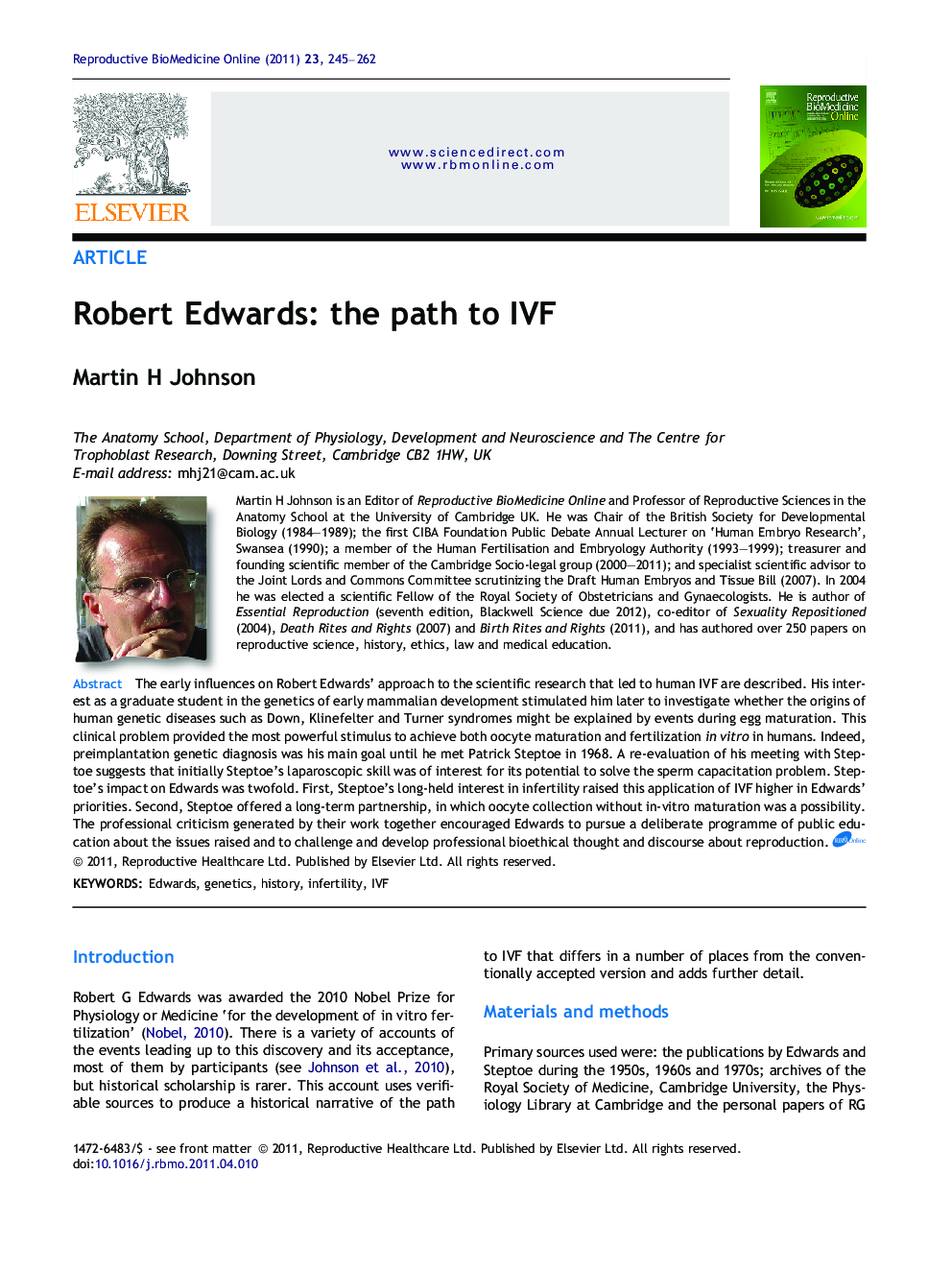| Article ID | Journal | Published Year | Pages | File Type |
|---|---|---|---|---|
| 6189222 | Reproductive BioMedicine Online | 2011 | 18 Pages |
The early influences on Robert Edwards' approach to the scientific research that led to human IVF are described. His interest as a graduate student in the genetics of early mammalian development stimulated him later to investigate whether the origins of human genetic diseases such as Down, Klinefelter and Turner syndromes might be explained by events during egg maturation. This clinical problem provided the most powerful stimulus to achieve both oocyte maturation and fertilization in vitro in humans. Indeed, preimplantation genetic diagnosis was his main goal until he met Patrick Steptoe in 1968. A re-evaluation of his meeting with Steptoe suggests that initially Steptoe's laparoscopic skill was of interest for its potential to solve the sperm capacitation problem. Steptoe's impact on Edwards was twofold. First, Steptoe's long-held interest in infertility raised this application of IVF higher in Edwards' priorities. Second, Steptoe offered a long-term partnership, in which oocyte collection without in-vitro maturation was a possibility. The professional criticism generated by their work together encouraged Edwards to pursue a deliberate programme of public education about the issues raised and to challenge and develop professional bioethical thought and discourse about reproduction.The early life and career of Robert Edwards are described and re-evaluated in the light of documentary evidence. His early interest in the genetics of development provided the major motivation behind his goal of achieving IVF in humans. Through this work, he aimed to understand and hopefully to reduce the transmission of genetic disease in humans. His meeting with Patrick Steptoe, the details of which are re-examined, increased the significance for Edwards of infertility as an outcome of IVF. It also led to a creative long-term research partnership, initiated a long-term programme of public education in the UK about reproductive science and stimulated the development of bioethical thinking.
